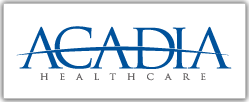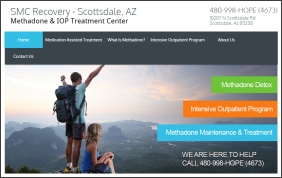 A study by the government agency SAMHSA indicated there were approximately 254,000 patients receiving methadone for opioid addiction in 2006. In 2015, it is most likely that number is much higher given the prevalence of opioid addiction and the continued expansion of outpatient opioid treatment services in the United States. Today, there are considerably more methadone clinics and suboxone-approved physicians than there were a decade ago.
A study by the government agency SAMHSA indicated there were approximately 254,000 patients receiving methadone for opioid addiction in 2006. In 2015, it is most likely that number is much higher given the prevalence of opioid addiction and the continued expansion of outpatient opioid treatment services in the United States. Today, there are considerably more methadone clinics and suboxone-approved physicians than there were a decade ago.
Making a new start with medication-assisted treatment is what hundreds of people across the country are deciding to do for themselves every week. Addiction is a progressive illness – one in which a person’s ability to choose is severely compromised. Medication-assisted treatment using either methadone or buprenorphine (suboxone) provides an important open door to a more responsible, quality life.
A majority of individuals suffering with opioid addiction (particularly when the illness spans years) have experienced dramatic brain changes which deepened their physiological dependency on opiates. This physical dependency is not easily removed. It is severe and persistent thus leading the person to do whatever is necessary to avoid being sick from opioid withdrawal.
Most long-term addicted individuals will tell you they rarely, if ever, get high from the illicit substances they use. They are simply trying to avoid being sick from debilitating opioid withdrawal symptoms. When a patient chooses to receive methadone or buprenorphine under the supervision of a doctor, they are making a decision to face their illness and to do something constructive about it.
As a family or friend, it is very helpful to gain an understanding of addiction and how medication-assisted treatment can be life changing for a person stuck in the cycle of opiate addiction.
Making a new start can be a bit frightening. Will methadone work for me? Will my loved ones condemn me? What about my job, or my legal situation? It becomes easy to put off making a decision when so many questions come into play.
It is important to remember that the road to recovery begins with just one step forward. That step will lead to another and another. This new start is always available. The message is one of hope and opportunity. Opiate addiction is a treatable illness. Medication-assistance can make a real difference.

 Follow
Follow

 Drug and alcohol addiction are treatable illnesses. They can be successfully managed and “arrested” such that they do not continue to harm a person’s life or compromise their health. Just as with any progressive illness, a patient should commit to a course of treatment that has been proven to eradicate their illness or reduce its impact. Heart disease, cancer, diabetes, morbid obesity, alzheimer’s – all of these have established medical treatments which can increase a person’s chance of survival and/or quality of life.
Drug and alcohol addiction are treatable illnesses. They can be successfully managed and “arrested” such that they do not continue to harm a person’s life or compromise their health. Just as with any progressive illness, a patient should commit to a course of treatment that has been proven to eradicate their illness or reduce its impact. Heart disease, cancer, diabetes, morbid obesity, alzheimer’s – all of these have established medical treatments which can increase a person’s chance of survival and/or quality of life.
 Paul LePage, the governor of Maine, has announced that he is considering ceasing state-funded support for methadone. As an alternative, Maine is proposing that patients prescribed methadone be switched to a more affordable suboxone option as part of a $727,000 state budget cut. The story is
Paul LePage, the governor of Maine, has announced that he is considering ceasing state-funded support for methadone. As an alternative, Maine is proposing that patients prescribed methadone be switched to a more affordable suboxone option as part of a $727,000 state budget cut. The story is 



